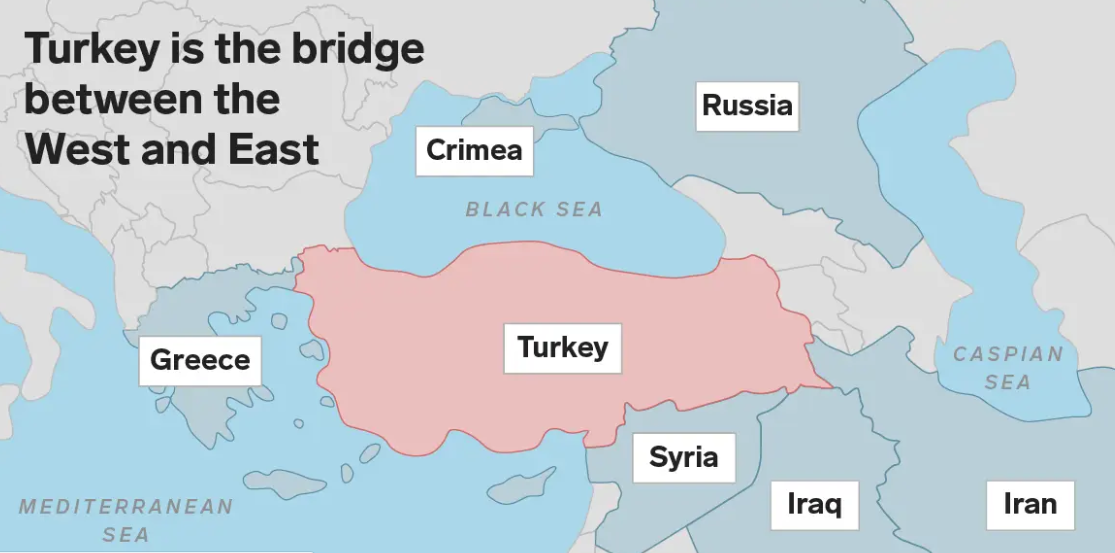As coronavirus ravages Iran and threatens to spread through the broader Middle East, potentially hitting refugee and war-torn populations hardest, it appears Erdogan is now making good on prior threats to “open the gates” of a flood of refugees on Europe. On Friday top Turkish officials were quoted as saying Turkey has no choice but to “loosen” its stance on the some 3.4 million refugees it is hosting.
This was the immediate, and perhaps predictable reaction, to Thursday’s dramatic escalation involving the deaths of some 33 Turkish soldiers in Idlib via airstrike, in the single deadliest day for Turkey in Syria throughout the entirety of the war. Widespread early reports said it was a Russian strike, but in a sign that Ankara doesn’t want to confront the more formidable Russian Air Force, it has blamed Syrian forces.
Turkey has announced it has opened its until now sealed border with Idlib for at least 72 hours, and will allow unhindered passage of refugees to Europe.
Turkish TVs broadcast footages showing migrants are boarding boats off Turkish coast, departing to Greek islands pic.twitter.com/YLMEM1lCMk
— Ragıp Soylu (@ragipsoylu) February 28, 2020
So it begins, as Middle East Eye reports:
Turkey will open its southwestern border with Syria for 72 hours to allow Syrians fleeing the pro-government forces’ assault free passage to Europe, Turkish official sources have told Middle East Eye.
The decision came after a security meeting chaired by Turkish President Recep Tayyip Erdogan in Ankara late on Thursday after 33 Turkish soldiers were killed in Syria’s Idlib province.
A senior Turkish official said on Thursday that Syrian refugees headed towards Europe would not be stopped either on land or by sea.
The European Union is downplaying the fact that crowds of Syrian refugees have already been seen en route to Greece via land borders as well as the Aegean Sea.
Buses in Istanbul were filmed providing transport to refugees and migrants to the Bulgarian and Greek borders.
Refugees gathered in Fatih, Istanbul, today after 5 buses brought by Turkey already left toward the Greek/Bulgarian border. Syrians know they are being used, but they don’t care. They want to live without fear. pic.twitter.com/0Z4CwrbKtc
— Elizabeth Tsurkov (@Elizrael) February 28, 2020
An EU spokesman was quoted in Reuters as downplaying the potential “flood” from Turkey coming: “I would like to stress that there was no official announcement from the Turkish side about any changes in their asylum seeker, refugee or migrant policy,” the spokesman for the EU’s executive said. “So from our point of view the EU-Turkey statement … still stands and we expect Turkey to uphold its commitments.”
But the reality on the ground may quickly prove these words moot:
Al Jazeera’s John Psaropoulos, reporting from Athens, said the situation was “a European nightmare” as “the floodgates [are] being opened”.
As European officials mull whether this is but more of Erdogan’s threats or perhaps an early “taste” of what’s to come, or whether the flood has begun, Greece and Bulgaria have begun taking action, bolstering patrols along border areas with Turkey.
6/ Greek journalist @savvaskarma says a dinghy boat carrying refugees just arrived on Lesbos island in Greece, following #Turkey‘s decision to allow refugees passage to Europe.
In age of social media, such news travels fast to all refugees in Turkey dreaming of reaching Europe. pic.twitter.com/ndbquSOg6q
— Jenan Moussa (@jenanmoussa) February 28, 2020
“Hundreds of Syrian refugees in Turkey have begun preparing to travel towards the country’s borders with Greece and Bulgaria after Ankara’s sudden decision to no longer impede their passage to Europe,” The Guardian reports early Friday.
“Turkish police, coastguard and border security officials were ordered to stand down overnight on Thursday, Turkish officials briefed reporters,” the report adds.
Greece appears to be responding by completely shutting any Turkish border access point to any and all traffic.

And further, according to The Guardian: “Turkish news agency Demirören showed footage of what it said was 300 people, including women and children, walking on highways and through forested land in north-west Turkey towards the EU border early on Friday. Syrians, Iranians, Iraqis, Pakistanis and Moroccans were among those in the group, it said.”
The WHO is especially concerned of an outbreak among refugee populations in war-torn regions of Iraq and Syria.
“Refugees and internally displaced populations across Iraq and Syria have been identified as the most vulnerable groups in the region, should the spread of the virus become a pandemic,” The Guardian reports of recent statements.
“Health officials in both countries remain under-equipped to deal with such a a reality that seems more possible with each passing day,” the report added.

Sprawling and densely packed “tent cities” of refugees along the border areas of Syria remain the most vulnerable.
Needless to say, we now have a dual crisis unfolding that’s indeed even more of a “nightmare” for Europe and the world than many could have predicted: a refugee flood, borders being opened, and the global threat of Covid-19.